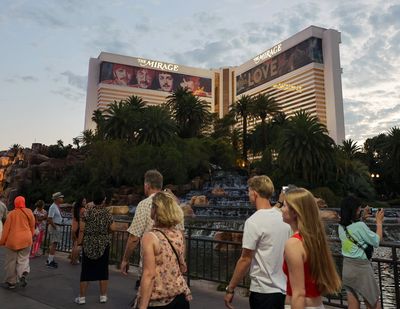Beatles’ master tapes were once hidden at The Mirage in Las Vegas

Hey, you’ve got to hide your tapes away.
For a time in the mid-2000s, The Mirage housed the most famous music catalog in history and hardly anyone knew.
The Beatles’ master tapes were reportedly kept in tightly guarded vault backstage at Love Theater, during the early days of “Love” at the hotel. Word of the history of these tapes made the rounds as the show closed July 7, and the hotel itself shut down July 17. Cirque PR rep Ann Paladie has not verified the history of the tapes related to the production.
But sources familiar with the music’s chain of possession report the masters were delivered from Abbey Road studios as theater construction was being completed in late 2005 through early 2006. The tapes were then sent back to England.
In keeping with the integrity of The Beatles’ catalog, the sound studio at Love Theater was created to the specifications of Abbey Road Studios. The annex served as the show’s audio nerve center throughout its run.
“Love” opened in June 2006, with The Beatles’ original producer George Martin leading the original sound editing. His son Giles Martin oversaw the remixing of the music for the live show, working from the original tapes in Las Vegas.
Just entering the “Love” studio required clearing multiple levels of security, requiring several hand scans and heavy security personnel inside the entire venue.
Giles Martin returned for a refresh of the music leading to the 10th anniversary in July 2016. Pieces of the original score were removed and added. By that time, Martin worked from digital copies and not the tapes themselves.
It’s often said that the younger Martin produced the same type of artistry with digital files as his father performed with the original tapes. The soundtrack was the last produced by George Martin before his death in 2016, and the last remnants of a show that thrilled audiences for 18 years.